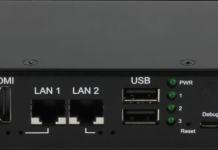
Email quickly became a mandatory part of our lives over the years. It’s how you apply to jobs, stay in touch with some friends, and handle online shopping – just to mention a few examples.
And since email is so vital nowadays, you need to make sure you pick the right service.
What Can Go Wrong If You Pick the “Wrong” Email Provider?
A lot of things, really. But let’s keep it simple by focusing on the most serious threats to your online safety and data:
You Lose All Your Privacy
When you send emails, you expect them to be private – just between you and the recipient, right?
Well, with a lot of popular email providers, that’s not the case at all.
Take Google for example – did you know the service actually scans your emails?
Sure, it originally tried to say it didn’t and when it finally came clean, promised to stop scanning personal emails but the fact is that Google lets hundreds of third party companies scan user emails. What’s worse, those companies can share your data with other parties too.
Also, according to a report, AOL and Yahoo! do a similar thing, but they actually scan the data themselves to find useful info, which they can sell to advertisers.
The Government Can Spy on You
If you use Gmail, you might as well start giving government agents your login credentials.
Why?
Because they already have access to your emails. Google is part of the PRISM surveillance program, after all.
True, the company did say they will use encryption to prevent government spying, but – then again – the CISA act pretty much makes that pointless.
Oh, and Yahoo! and AOL are part of the PRISM surveillance program too. Yahoo! even went as far as building custom software that scans its users’ incoming emails for US intelligence agencies.

You Won’t Get Top-Notch Encryption
When you use email services like Gmail and Yahoo!, you’re not really getting the security you deserve.
Sure, your emails get to enjoy a bit of encryption, but hardly enough to really protect them.
That’s because both Yahoo! and Google have yet to implement end-to-end encryption – basically, encryption that would prevent the tech giants from seeing your emails.
Not only that, but if you use Gmail to communicate with someone who uses an email service with no TLS support, your emails won’t be encrypted at all!
Also Read: Top 8 Encrypted Email Services for 2020
You’ll Be at Risk of Getting Hacked
Cybercriminals love targeting big email providers – they have millions of potential victims that way, and the services often have serious vulnerabilities.
Around 1.5 billion Gmail were recently at risk, actually, and around three billion Yahoo! accounts got hacked because of a data breach back in 2013. AOL users aren’t safe either – the service suffered a significant cyber attack back in 2014 that put a large number of accounts in danger.
What to Look for When Choosing an Email Service Provider
If you want to really make sure all your email data is safe from hackers and government agencies, you need to pick an email provider that knows how to protect and respect your privacy.
Here are the kinds of things you need to pay attention to:
1. End-to-End Encryption
End-to-end encryption is the only way you can make sure the provider won’t spy on you – even if they promise they don’t do that.
With this kind of encryption, the mail server you’re using to send and receive emails can’t read the contents of your messages. So, when you send someone a message, only they’ll be able to read it since they are the only ones who have the private key which is used to decrypt the email.
And besides keeping you safe from any spying on your email provider’s part, end-to-end encryption also protects you from cyberattacks. Even if hackers breach the provider’s servers, they can’t find any useful info.
If the email service offers an encrypted calendar solution, it’s even better.
2. Open-Source Code
Closed-source code just isn’t very trustworthy. If you’re a tech-savvy programmer, you can’t audit it to see if there are any risky commands that violate user privacy. Instead, you have to take the email provider’s word for it.
With open-source, that’s not a problem. Really secure email solutions only use open-source code, which they make public on platforms like GitHub, so that users can check it out to make sure it’s doing what it promises – and nothing more.

3. Logging Policy
Nothing good can come of an email provider that logs too much of your data. So, always check that they don’t log sensitive stuff – especially your IP address. In fact, the provider shouldn’t log your IP address when you log in at all – or when you send and receive emails for that matter.
At most, they should not keep permanent logs if they really need to log some data.
And if the provider makes it clear they are GDPR-compliant, it makes them an even better choice.
4. Jurisdiction
The country where the email provider has their servers will influence how much of your data they log. Usually, places like the US or the UK are red flags because of how bad the privacy laws are there.
Instead, you should look for email service providers that have their HQs and servers in places like Switzerland, Germany, Gibraltar, of the British Virgin Islands.
Want Some Recommendations?
Finding the right email service provider can be tough. There are a lot of options on the market right now, and the things I mentioned above are just the tip of the iceberg. To make a really informed decision, you need to be on the lookout for even more stuff.
To be completely honest, I would have ended up spending a whole day or more looking for a really good email solution if it weren’t for this clear and in-depth list of the best email providers.


















